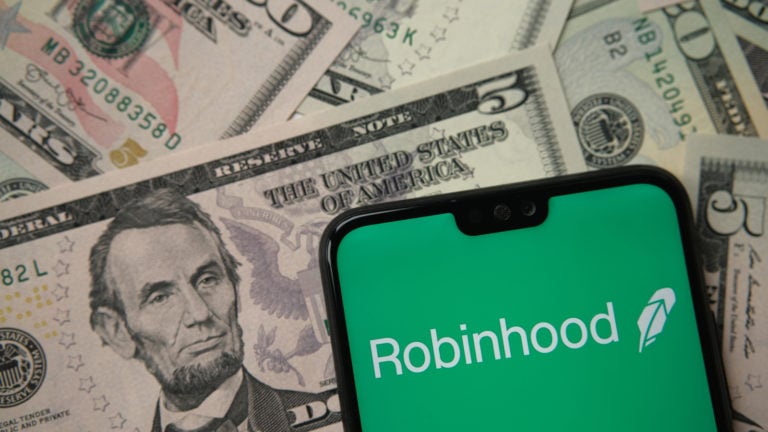Against a positive backdrop for the equities sector, shares of trading app Robinhood (NASDAQ:HOOD) dipped on Friday. This action followed a sizable decline during the prior session after Robinhood delivered a milestone earnings report but against a worrying broader context. Further, Alphabet (NASDAQ:GOOG, NASDAQ:GOOGL) revealed that it substantially cut its stake in HOOD stock.
According to a Reuters report, the internet technology stalwart revealed that it slashed its stake in Robinhood by nearly 90%. Fundamentally, the trading app operator struggled for traction amid a slowdown in its core business. Per the news agency, the Google parent company had invested in Robinhood when it was an unlisted startup. As of the end of 2021, Alphabet held over 4.9 million shares of HOOD stock.
During the peak of the Robinhood frenzy in August 2021, that stake tallied a value of nearly $419 million. That was just a month after its initial public offering (IPO). After the aforementioned divesture, Alphabet now owns 612,214 shares of HOOD stock, worth about $7 million, per Reuters.
Reversal of Fortune Craters HOOD Stock
Seemingly, the once heavily touted brand appears to be printing a rags-to-riches-to-rags tale. During the worst of the Covid-19 pandemic, the Robinhood app took off, facilitating commission-free trades and an intuitive interface, thereby allowing quarantined individuals to essentially live their Gordon Gekko fantasies. Naturally, HOOD stock blossomed.
However, those fantasies of the fictional pop-culture icon ran into the very real impact of Federal Reserve Chair Jerome Powell. With the central bank deploying its interest rate hiking campaign, the easy money policy that undergirded high-flying tech plays — along with of course the meme stocks — quickly vanished. Suddenly, retail traders saw red ink flash on their screens, a sharp contrast to prior extreme optimism.
According to a CNBC report in late 2022, only 1% of retail traders planned to sell off their investments in 2023. On paper, this framework boded well for HOOD stock. However, it eventually became apparent that regular investors have had enough.
In early May, Business Insider reported that retail market participants “rage sold” out of the equities sector following a difficult 18-month stretch.
Even Good News Isn’t Good Enough
What is perhaps most bothersome about HOOD stock to outside observers is that even positive news has so far failed to reignite bullish sentiment. On Thursday, Robinhood posted its first profitable quarter, an achievement CEO Vlad Tenev called “a significant milestone.” Even more promising, the print beat analysts’ expectations for a slight loss.
However, HOOD stock fell off sharply because of the ongoing negative context. As Barron’s stated, trading activity in the second quarter declined, with the platform posting 10.8 million monthly active users, down by 1 million against the prior (sequential) quarter.
On the date of publication, Josh Enomoto did not have (either directly or indirectly) any positions in the securities mentioned in this article. The opinions expressed in this article are those of the writer, subject to the InvestorPlace.com Publishing Guidelines.

